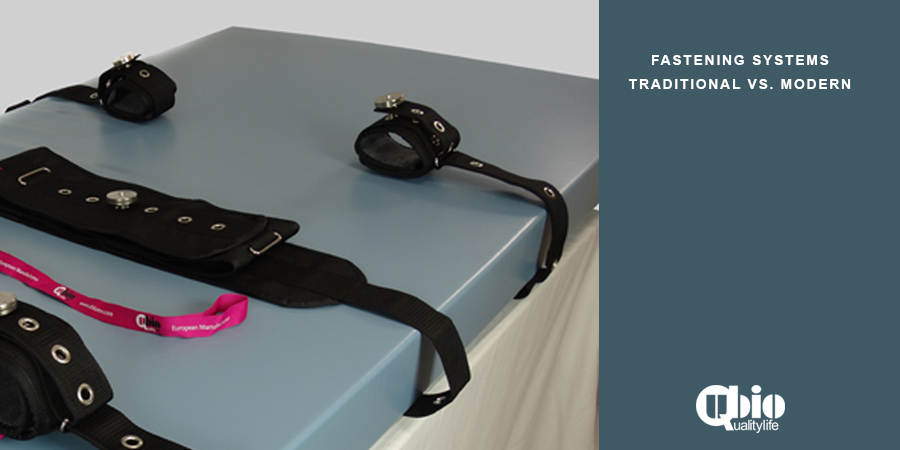There has long been an open debate about whether or not to use restraint equipment on immobilised, demented or hospitalised patients.
The general opinion of the experts is to avoid the use of physical restraint devices as much as possible, promoting those procedures that attend to the autonomy, dignity and self-esteem of the patients.
The WHO defines mechanical restraints as an extraordinary method… that according to all declarations on human rights… will only be tolerated in emergency situations involving an urgent or immediate threat to the life and/or physical integrity of the patient himself or others, and which cannot be averted by other therapeutic means.
What are mechanical restraints?
These are understood to be those physical restraint devices that are intended to limit the mobility, in a partial or generalised manner, of the person, in order to try to guarantee his/her safety or that of others.
They are indicated for cases in which there is a high risk that the person may injure him/herself or others, to avoid the manipulation of roads and other medical devices and, whenever the doctor considers it necessary for his/her recovery.
What alternatives exist?
With the aim of respecting the dignity and the principle of autonomy of the sick or dependent persons, today’s care, health and home care centres are using, whenever possible, alternative measures that tend to minimise the risks in the case of falls instead of immobilising the patient.
How does Ubiotex work to help carers and patients?
We have developed a line of protective products that help elderly or disabled people to maintain their autonomy safely by minimising the consequences of possible falls such as: head protection helmets, hip protectors or floor mattresses.

In addition, we have a line of holding devices for those cases where it is necessary.
Their use must be recommended and supervised by a health professional. In this sense, there are action protocols that must be followed in the event of their use in order to be beneficial and effective and to fulfil their therapeutic function, such as support belts, wrist bands, ankle bracelets, mittens… made from various materials and types of fasteners to adapt to the different needs of users and/or carers.
At Ubiotex we want to join the promotion of good practices in care centres by working on the development of products that improve the day-to-day life of carers and patients.
Do not hesitate to contact us.

